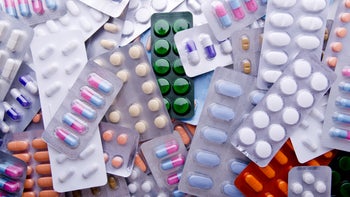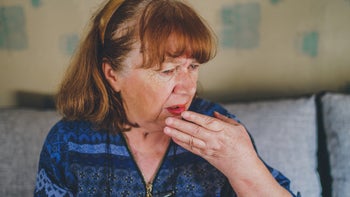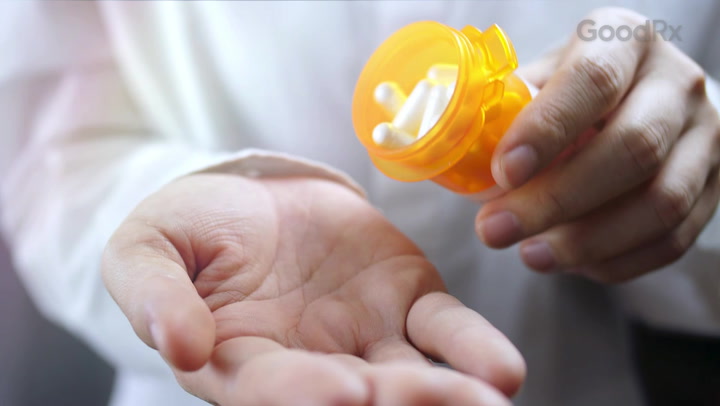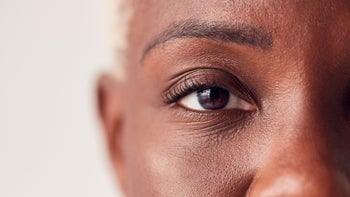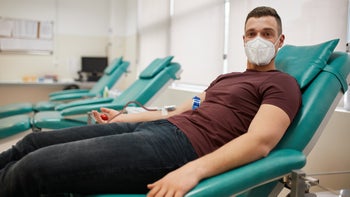
Can Antidepressants and Anti-Anxiety Drugs Cause Erectile Dysfunction?
Key takeaways:
Erectile dysfunction (ED) is a common side effect of many antidepressants and anti-anxiety medications.
Selective serotonin reuptake inhibitors (SSRIs), such as paroxetine (Paxil), can cause sexual side effects. They’re thought to do this by changing the amount of serotonin in the body. Many other antidepressants and anti-anxiety medications have similar effects.
When needed, medications like buspirone and sildenafil (Viagra) can help improve sexual side effects like ED. You can take them alongside your antidepressant or anti-anxiety medication.
Access savings on related medications
Table of contents

So, you’ve been seeing a therapist, and you’ve started your depression or anxiety regimen. You haven’t noticed any changes to your mental health yet, but you’ve started to experience a side effect known as erectile dysfunction (ED). The truth is, there are a slew of medications that cause ED or make it worse. A good chunk of these are mental health medications.
Here, we’ll discuss six of the most common anxiety and depression treatments that can cause or worsen ED.
1. Selective serotonin reuptake inhibitors
Selective serotonin reuptake inhibitors (SSRIs) are the most commonly prescribed antidepressants. They’re known to cause ED in many people, though.
Fast, affordable ED treatment from GoodRx
Build a personalized treatment plan and get erectile meds delivered discreetly. Subscriptions start at just $18/mo.

GoodRx is NOT insurance. Cancel anytime. GoodRx Health information and resources are reviewed by our editorial staff with medical and healthcare policy and pricing experience. See our editorial policy for more detail. We also provide access to services offered by GoodRx and our partners when we think these services might be useful to our visitors. We may receive compensation when a user decides to leverage these services, but making them available does not influence the medical content our editorial staff provides.
This class of medications includes several popular prescription medications, including:
Sertraline (Zoloft)
Fluoxetine (Prozac)
Citalopram (Celexa)
Escitalopram (Lexapro)
Paroxetine (Paxil)
Not all SSRIs are equal. ED is more common with some SSRIs than others. For example, paroxetine can affect up to three-fourths of people who use it, while fluoxetine and sertraline have a lower risk of sexual side effects. Still, all SSRIs carry the risk of affecting your sexual performance to some degree.
2. Serotonin and norepinephrine reuptake inhibitors
Serotonin and norepinephrine reuptake inhibitors (SNRIs) are another common class of antidepressants. They include medications such as venlafaxine (Effexor XR), duloxetine (Cymbalta), and desvenlafaxine (Pristiq). They work similarly to SSRIs, but while SSRIs are primarily used to treat depression and anxiety, some SNRIs can also manage nerve pain.
SNRIs are similar to SSRIs when it comes to sexual problems.
3. Benzodiazepines
Benzodiazepines are a type of sedative. These medications help calm the brain. Common benzodiazepines include:
Alprazolam (Xanax)
Lorazepam (Ativan)
Clonazepam (Klonopin)
Diazepam (Valium)
Demystifying erectile dysfunction (ED): Learn about the possible causes of ED, as well as treatments that can help.
Beyond antidepressants: Here’s an overview of common medications that can affect your sexual wellness.
Does cannabis have a connection to sexual health? Explore the potential effects of cannabis on your sex life.
Benzodiazepines are useful medications that can be taken as needed for situations such as anxiety attacks and insomnia. Some people may also take them every day in select cases. However, benzodiazepines have a number of risks attached to them. This includes the potential to cause ED or make it worse.
Men who take benzodiazepines may be 2 to 3 times more likely to experience ED.
4. Antipsychotics
Some antipsychotic medications have ED rates of over 30%. This includes haloperidol (Haldol), risperidone (Risperdal), and more.
Antipsychotics primarily work by blocking a brain chemical called dopamine. But they can also increase the levels of a hormone called prolactin. Too much prolactin can contribute to ED symptoms.
Thankfully, not all antipsychotics have significant effects on prolactin. Aripiprazole (Abilify) and quetiapine (Seroquel) are top examples. These antipsychotics are less likely to cause ED than most SSRIs, SNRIs, and benzodiazepines.
5. Tricyclic antidepressants
Tricyclic antidepressants (TCAs) are sometimes prescribed to treat depression and anxiety. They’re used less often than SSRIs and SNRIs because they typically cause more side effects. TCAs tend to be most helpful if you have chronic pain or migraines in addition to anxiety or depression.
Amitriptyline, imipramine (Tofranil), doxepin (Silenor), and other TCAs have all been linked to ED. Estimates suggest that sexual side effects affect about 30% of people taking these medications.
6. Atypical antidepressants
Atypical antidepressants are a broad class of antidepressants. Generally speaking, they’re less likely to cause ED than other antidepressants. But this side effect can potentially happen with some of them, such as trazodone and dextromethorphan / bupropion (Auvelity).
Other atypical antidepressants are less of an issue. For instance, sex-related side effects aren’t common with bupropion (Wellbutrin SR, Wellbutrin XL). Some people even experience relief from SSRI-related sexual side effects after switching to vortioxetine (Trintellix). Vilazodone (Viibryd), mirtazapine (Remeron), and nefazodone are also unlikely to cause ED.
How do these medications cause erectile dysfunction?
It’s not confirmed why these medications cause ED. But health experts believe it’s because many of them affect your body’s supply of serotonin. Serotonin is also known as the “happy” hormone — it’s well-known for its role in mood. But it’s also one of the many chemicals in your body responsible for promoting and maintaining an erection. If there’s too much or too little, ED symptoms can appear.
Be aware that this is not a complete list of all medications that can cause ED as a side effect. Ask the pharmacist who fills your prescriptions if anything you’re taking could cause ED. Also, make sure you let your healthcare professional know if you suddenly begin to experience ED symptoms after starting a new medication.
If your medicine is causing ED, your healthcare professional may take a few steps to help you resolve the issue. They might:
Wait and see: You may experience ED symptoms when you start taking antidepressants or anti-anxiety medications. But this could just be temporary. Your healthcare professional may want you to wait a few weeks until your body has a chance to adjust to the new medication before changing anything. In many cases, ED symptoms go away.
Change it up: If your current medication regimen isn’t working well enough to manage your depression or anxiety and it’s causing ED side effects, talk to your healthcare professional about trying a different medication. There are many antidepressant and anti-anxiety options available. Some are more likely to cause ED than others.
Add it on: If your current medication regimen is working well for your depression or anxiety, you might be hesitant to change it. So, what can you do if it’s causing ED? Adding bupropion to your routine can help improve your ED symptoms. Medications like sildenafil (Viagra) or tadalafil (Cialis) are also options.
Does buspirone have sexual side effects?
Buspirone is an anti-anxiety medication with milder side effects than many other anxiety medications. You can take it alone or with medications like SSRIs or SNRIs. Buspirone is FDA approved to treat generalized anxiety disorder.
What’s more, some studies have found that taking buspirone can improve sexual side effects, such as ED, when used as part of an anti-anxiety treatment. It’s also recommended by the American Psychiatric Association to help treat ED among people living with depression.
Keep in mind that this is considered an off-label use. Buspirone’s ability to treat ED symptoms hasn’t been formally evaluated by the FDA.
Quiz: Is it erectile dysfunction?
The bottom line
Erectile dysfunction (ED) is a common side effect of many antidepressants and anti-anxiety medications. Selective serotonin reuptake inhibitors (SSRIs), benzodiazepines, antipsychotics, and more may cause ED or other related side effects that affect your sexual performance. If you’re experiencing ED and you think it's related to your medication, make sure to ask your healthcare professional about next steps.
Why trust our experts?



References
Arias, F., et al. (2013). Disfunciones sexuales inducidas por los inhibidores de la recaptación de serotonina. Atencion Primaria.
Balon, R. (2009). Medications and sexual function and dysfunction. Focus.
Endocrine Society. (2022). Hyperprolactinemia.
Gelenberg, A. J., et al. (2010). Practice guideline for the treatment of patients with major depressive disorder. American Psychiatric Association.
Higgins, A., et al. (2010). Antidepressant-associated sexual dysfunction: Impact, effects, and treatment. Drug, Healthcare, and Patient Safety.
Hull, E. M., et al. (2004). Dopamine and serotonin: Influences on male sexual behavior. Physiology and Behavior.
Jing, E., et al. (2016). Sexual dysfunction in selective serotonin reuptake inhibitors (SSRIs) and potential solutions: A narrative literature review. The Mental Health Clinician.
Kupelian, V., et al. (20). Common prescription medication use and erectile dysfunction. Results from the Boston Area Community Health (BACH) Survey. BJU International.
Montejo, A. L., et al. (2009). Incidence of sexual dysfunction associated with antidepressant agents: A prospective multicenter study of 1022 outpatients. Journal of Clinical Psychiatry.
Montejo, A. L., et al. (2024). Switching to vortioxetine in patients with poorly tolerated antidepressant-related sexual dysfunction in clinical practice: A 3-month prospective real-life study. Journal of Clinical Medicine.
Park, Y. W., et al. (2012). Antipsychotic-induced sexual dysfunction and its management. The World Journal of Men’s Health.
Patel, K., et al. (2016). Bupropion: A systematic review and meta-analysis of effectiveness as an antidepressant. Therapeutic Advances in Psychopharmacology.
Watanabe, N., et al. (2011). Mirtazapine versus other antidepressive agents for depression. Cochrane Database of Systematic Reviews.
Was this page helpful?
Related Articles
Browse medications
View AllResearch prescriptions and over-the-counter medications from A to Z, compare drug prices, and start saving.











